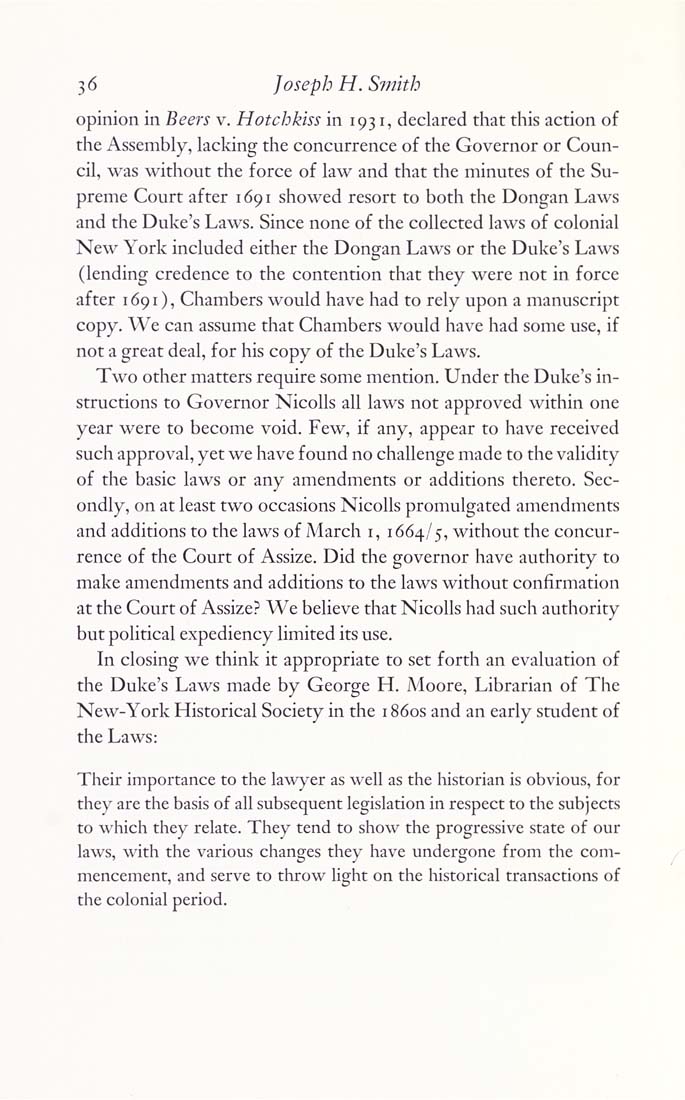Columbia Library columns (v.28(1978Nov-1979May))
(New York : Friends of the Columbia Libraries. )
|
||
|
|
|
|
| v.28,no.3(1979:May): Page 36 |

36 Joseph H. Snrith opinion in Beers v. Hotchkiss in 1931, declared that this action of the Assembly, lacking the concurrence of the Governor or Coun¬ cil, was without the force of law and that the minutes of the Su¬ preme Court after 1691 showed resort to both the Dongan Laws and the Duke's Laws. Since none of the collected laws of colonial New York included either the Dongan Laws or the Duke's Laws (lending credence to the contention that they were not in force after 1691), Chambers would have had to rely upon a manuscript copy. We can assume that Chambers would have had some use, if not a great deal, for his copy of the Duke's Laws. Two other matters require some mention. Under the Duke's in¬ structions to Governor Nicolls all laws not approved within one year were to become void. Few, if any, appear to have received such approval, yet we have found no challenge made to the validity of the basic laws or any amendments or additions thereto. Sec¬ ondly, on at least two occasions Nicolls promulgated amendments and additions to the laws of March i, 1664/5, without the concur¬ rence of the Court of Assize. Did the governor have authority to make amendments and additions to the laws without confirmation at the Court of Assize? We believe that Nicolls had such authority but political expediency limited its use. In closing we think it appropriate to set forth an evaluation of the Duke's Laws made by George H. Moore, Librarian of The New-York Historical Society in the 186os and an early smdent of the Laws: Their importance to the lawyer as well as the historian is obvious, for they are the basis of all subsequent legislation in respect to the subjects to which they relate. They tend to show the progressive state of our laws, with the various changes they have undergone from the com¬ mencement, and serve to throw light on the hi,storical ttansactions of the colonial period. |
| v.28,no.3(1979:May): Page 36 |







